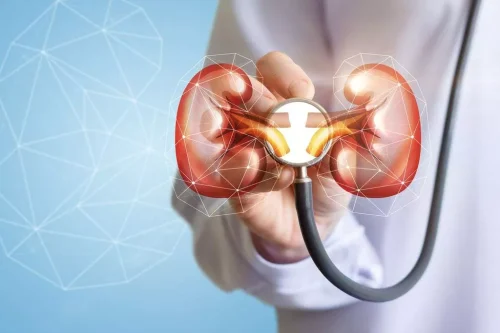
Rather, they lack the brash confidence of overt narcissists and fear being exposed and humiliated if they draw public attention to themselves. Often this is because they have been conditioned not to compete with a domineering overt narcissist parent. Conversely, alcohol abuse can exacerbate narcissistic traits, such as grandiosity and lack of empathy. This interplay can create a destructive cycle that’s difficult to break without professional intervention.
tips to heal from covert abuse
There are times when it can be difficult to create distance between you and that person, such as with a family member or co-worker. To spot the signs of a covert narcissist, it can be helpful to look at how narcissistic traits may emerge in different settings. Just as with an overt narcissist, you will likely find yourself doing most of the heavy emotional lifting in a relationship with a covert narcissist. Because their need for self-importance reigns supreme, covert narcissists will do whatever they need to do in order to keep the focus on themselves. So, where an extroverted narcissist will blatantly push you aside or manipulate you to accomplish their goal, the covert narcissist is a professional at not acknowledging you at all. Although they are not always sneaky, some covert narcissists can take joy in creating confusion.
Impact of Alcoholism on Narcissistic Behavior

For this reason, covert narcissism is more difficult to spot, and it can take years to recognize it in someone you think you know well. But the good news is that once you become aware of the patterns and signs of covert narcissism, you aren’t likely to miss them again. Genetic predisposition plays a role in both https://ecosoberhouse.com/ narcissistic traits and alcoholism. Studies of twins and families show heritability estimates of 50-60% for narcissistic personality disorder and 40-60% for alcohol use disorder.
Future Directions in Treatment and Research
- You might also consider seeing a therapist who can provide you with coping tools and a means to sort out your feelings.
- This may be related, in part, to the fact that modern culture places a high value on women’s physical appearance.
- And the high and the buzz of the dream compensate for any frustration, any depression, stress, anxiety, deficiency, inferiority.
- Emotional instability, intense mood swings, and a fear of abandonment characterize individuals with Borderline Personality Disorder (BPD).
Family therapy is often beneficial, helping to repair relationships damaged by narcissistic behaviors and alcohol abuse. Cognitive Behavioral Therapy (CBT) is a key treatment for narcissistic alcoholism. It helps individuals identify and change negative thought patterns and behaviors related to both conditions. The presence of both disorders can make diagnosis and treatment more challenging.
He is exactly like the psychopath he’s addicted to risk and thrill and novelty. He feels that he is in control, that he’s alert, that he’s excited, that he’s vital when he engages in addictive behaviors. This kind of feelings and emotions place the narcissist above the laws and pressures of the mundane, of the pedestrian, of the day-to-day life, away from details. So all these piggyback, piggyback on the primary addiction, on the primary dependence on narcissistic supply, it’s an addictive personality, is an addictive personality. And so alcoholics make people who drink, alcoholics are not alcoholics, problem drinkers, alcohol abusers, that’s the official clinical term, they make choices, it’s choice. Covert narcissist would engage in this kind of behavior when they’re bored, when they’re bored, they possess a low arousal or low boredom threshold, very much like psychopaths.
Manipulation and Control in Relationships
- People in this group were also less likely to see their alcohol use as a problem.
- Educating ourselves about narcissism and BPD aids in understanding the dynamics at play, empowering us to make informed decisions about the relationship’s future.
- Alcohol can amplify these angry outbursts, leading to verbal or even physical abuse.
- Seeking support, focusing on personal strengths, and promoting truth and harmony within the family can aid in mitigating the detrimental effects of covert narcissistic manipulation in custody battles.
Problem drinkers are people who resort to alcohol in order to regulate emotions and moods, but they are not addicted to alcohol. Only when they have a mood that they wish to eradicate or when only when their emotions are out of control and they overwhelm them, only then do they do they use alcohol. So in my personal opinion, as someone who had been trained in medicine and in psychology, I don’t buy this story that alcoholism is a brain disorder. There is a fad or a fashion nowadays to try to find an equivalent in brain activity or blood flow in the brain to every mental health condition. Our Medical Affairs Team is a dedicated group of medical professionals with diverse and extensive clinical experience who actively contribute to the development of our content, products, and services.

No studies examined associations between narcissism and alcohol problems, problem expectancies, problem evaluation and readiness to change. Exploring how covert narcissism influences addictive behaviors sheds light on a unique yet impactful aspect of this psychological dynamic, prompting us to delve deeper into the underlying motives and consequences. Another study from 2019 found a link between drinking and the narcissistic traits of devaluing and entitlement-rage.

The goal of creating distance is not to hurt the other person; the goal is to protect yourself and create space for covert narcissism and alcoholism you to heal. Setting boundaries can be very difficult, particularly with a narcissist. Remember that boundaries are just a way for you to let someone else know what your values are. Consider what is important to you, what your values are, and work to create boundaries to support them.